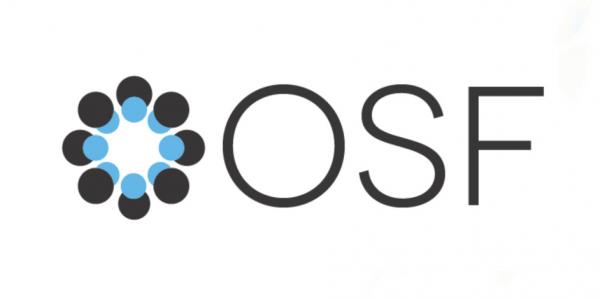
Here we review many services that may help with sharing and storing data at UBC. To facilitate the construction of data management plans, we make a distinction between data in an ongoing research investigation (Live Storage) and final data that has been processed and/or analyzed (Archival Storage).
DATA SHARING
OPEN SCIENCE FRAMEWORK:
Open Science Framework (OSF) is a free and open-source cloud-based data management system developed by the Center for Open Science (COS). UBC is an OSF Institution, which means researchers can affiliate their OSF account and projects with UBC and log into OSF is possible using their university credentials.
OSF can be used to store and share individual files up to a size of 5 GB. Private OSF projects only support 5GB of total storage but public OSF projects support up to 50 GB of storage. There are no limits to the amount of storage that can be used by an individual user.
Learn more about OSF here.
SCHOLARS PORTAL DATAVERSE:
Dataverse can be used by affiliated researchers to deposit, share, and archive research data. The size limit for individual uploads is 2.5 GB, so Dataverse should only be used for relatively small datasets.
Learn more about Dataverse here.
We are pleased to announce that we have set up a dataverse for the cluster within the UBC dataverse, under which we can set up dataverses for individual labs. Contact Jeffrey LeDue at jledue@mail.ubc.ca to set up a dataverse for your lab.
FEDERATED RESEARCH DATA REPOSITORY (FRDR):
Portage, Compute Canada (CC) and the Canadian Association of Research Libraries (CARL) have collaborated to produce the Federated Research Data Repository. This service is ideal for the storage and sharing of large files with individuals being provided with 1TB of personal storage space and no official limit on data upload size. Large uploads to FRDR are supported through Globus.
Learn more about FRDR here.
COMPUTE CANADA:
Data can be shared between user spaces on Compute Canada using a variety of different methods. On Compute Canada clusters, Home spaces are unique to individual users and provide 50 GB of storage while the Project space is shared by a research group and provides up to 1 TB of storage.
For more information on how data can be shared between user spaces, consult the UBC Dynamic Brain Circuits Cluster White Paper.
TEAMSHARE:
Teamshare services for UBC are very quick to implement and allow for convenient and rapid sharing of relatively small datasets for a reasonable cost. Note that this is an internal UBC file sharing service and is therefore not suitable for data publication or inter-institutional collaboration.
Learn more about UBC Teamshare here.
LIVE STORAGE
TEAMSHARE:
TeamShare is effective as an on-campus only UBC owned model equivalent to Dropbox.
ALDER:
Alder is the DMCBH cluster. Storage on Alder is to be used as a scratch space since it is not backed up. To obtain an Alder account, see here.
COMPUTE CANADA RAPID ACCESS SERVICE (RAS):
Any faculty member at a Canadian university can register an account at the Computer Canada Database, and once registered can sponsor accounts for students, staff, and collaborators. Learn more here.
In BC, Compute Canada servers and resources are accessed through WestGrid.
EDUCLOUD:
Educloud is equivalent to Amazon Cloud storage, but compliant with BC data storage and privacy regulations and usually a lower cost solution.
ARCHIVAL STORAGE
TEAMSHARE:
Teamshare is cost-effective approximately until 15 TB of usage after which cloud storage becomes the better strategy.
COMPUTE CANADA NEARLINE:
Nearline is a file system virtualized onto tape, and is the best location for data archival on Compute Canada. For more information, consult the UBC Dynamic Brain Circuits Cluster White Paper.
OPEN SCIENCE FRAMEWORK:
Learn more about OSF here.
OPEN DATA SOURCES
This is a list of open data sources that can be accessed online.

